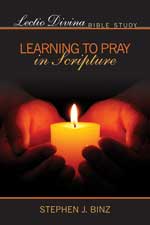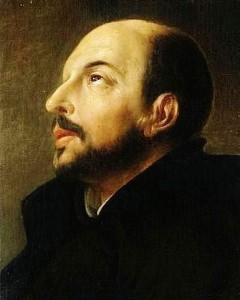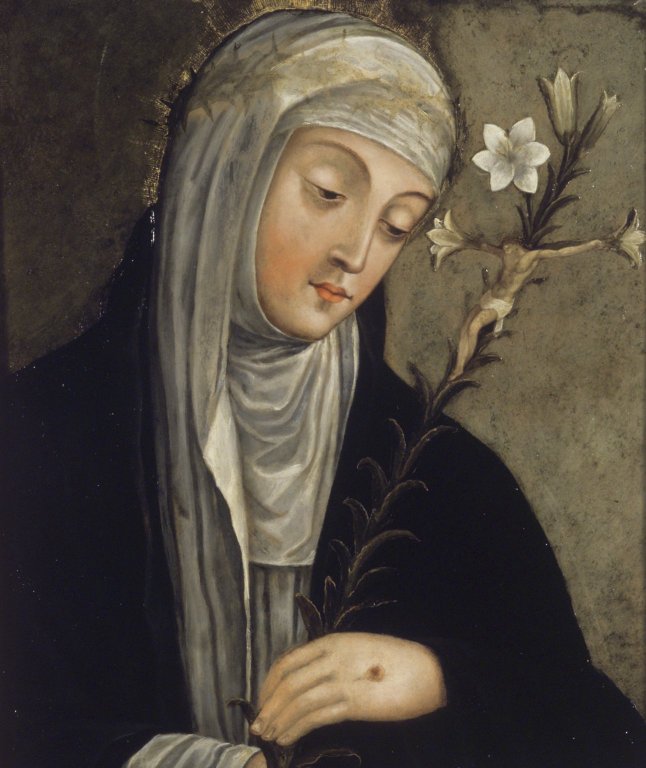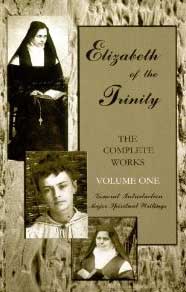Stephen J. Binz is a Catholic biblical scholar, psychotherapist, popular speaker, and award-winning author of more than thirty books on 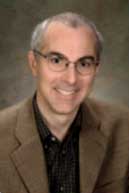 the Bible and biblical spirituality. Â “Learning to Pray with Scripture” is another volume in the excellent “Lectio Divina” series brought to us by Our Sunday Visitor. Â In it Stephen uses the actual prayers of Sacred Scripture to help us enter a deeper relationship with God through our own prayer. Â This series is outstanding, and absolute MUST for those seeking a great guide to this ancient prayer form!
the Bible and biblical spirituality. Â “Learning to Pray with Scripture” is another volume in the excellent “Lectio Divina” series brought to us by Our Sunday Visitor. Â In it Stephen uses the actual prayers of Sacred Scripture to help us enter a deeper relationship with God through our own prayer. Â This series is outstanding, and absolute MUST for those seeking a great guide to this ancient prayer form!
You can find this book here
This study shows the way that various characters in the Bible prayed and what they can teach you about prayer. It also delves into various types of prayer and what you can learn from them.
Every chapter leads you forward through a sequence of:
- Listening – Reading Scripture with expectancy, trusting that God will speak His Word to us through it
- Understanding – Seeking to comprehend the meaning of the text, encountering God there and being changed by that encounter
- Reflecting – Linking the truth of the Scriptures to the experience of faith in the world in which we live
- Praying – A dialogue with God: we listen to God, then we respond in prayer
- Acting – After prayerfully listening to God through a passage of Scripture, we should be inspired to make a difference in the way we live
Tags: catholic, catholic podcast, catholic prayer, cathollc spirituality
This entry was posted on Monday, May 7th, 2012 at 12:57 am
You can follow any responses to this entry through the RSS 2.0 feed.
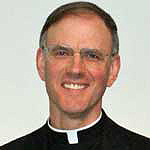 Episode 6Â Â Praying with Scripture: Christian Contemplation and Mediation in the Ignatian tradition w/Fr. Timothy Gallagher
Episode 6Â Â Praying with Scripture: Christian Contemplation and Mediation in the Ignatian tradition w/Fr. Timothy Gallagher
Fr. Gallagher continues to discuss the differences and benefits of meditation and contemplation – the cornerstones of Ignatius of Loyola’s spiritual practice.
[powerpress]
For other episodes in the series visit The Discerning Hearts “Praying with Scripture†page
Father Timothy M. Gallagher, O.M.V., was ordained in 1979 as a member of the Oblates of the Virgin Mary, a religious community dedicated to retreats and spiritual formation according to the Spiritual Exercises of St. Ignatius. Â Fr. Gallagher is featured on the EWTN series “Living the Discerning Life: Â The Spiritual Teachings of St. Ignatius of Loyola”.
For more information on how to obtain copies of Fr. Gallaghers’s various books and audio which are available for purchase, please visit  his  website:   frtimothygallagher.org
 For the other episodes in this series check out Fr. Timothy Gallagher’s “Discerning Hearts†page
Tags: catholic, catholic podcast, catholic prayer, cathollc spirituality, Christian Contemplation, Timothy Gallagher, Timothy Gallagher Fr
This entry was posted on Thursday, May 3rd, 2012 at 7:44 am
You can follow any responses to this entry through the RSS 2.0 feed.
Vatican City, 2 May 2012 (VIS) – 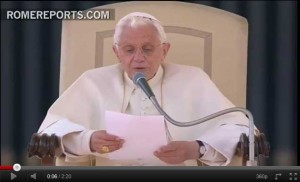
The prayer of St. Stephen, the first Christian martyr, was the theme of the Holy Father’s catechesis during his general audience this morning.
Addressing more than 20,000 faithful filling St. Peter’s Square, the Pope explained how, according to the narrative of the Acts of the Apostles, Stephen was taken before the Sanhedrin accused of having declared that Jesus would destroy the Temple and change the customs handed down by Moses. In his address before the council Stephen explained that, in saying these things, Jesus had been referring to His body, which was the new temple. In this way, Christ “inaugurated the new worship and, with the offer of Himself on the cross, replaced the ancient sacrifices”, Benedict XVI said.
Stephen wished to show that the accusation of subverting the Law of Moses was unfounded, to which end he outlined his view of the history of salvation, of the covenant between God and man. “Thus”, the Holy Father explained, “he reread the entire biblical narrative to show that it led to the ‘place’ of God’s definitive presence, which is Jesus Christ and in particular His passion, death and resurrection. Stephen interpreted his status as a disciple of Jesus in the same light, … following Him to martyrdom. Thus, meditation upon Sacred Scripture helped him to understand … the present”.
“In his meditation upon God’s action in the history of salvation” the proto-martyr “highlighted the perennial temptation to reject God and His acts, and affirmed that Jesus is the Just One announced by the prophets. In Him, God made Himself definitively and uniquely present: Jesus is the ‘place’ of true worship”.
Stephen’s explanations and his life were interrupted by his stoning, yet “martyrdom was the culmination of his life and message, because he became one with Christ. Thus his meditation upon the action of God in history, on the divine Word which was entirely fulfilled in Jesus, became a form of participation in Christ’s prayer on the cross”.
The moment of Stephen’s martyrdom “again revealed the fruitful relationship between the Word of God and prayer”, the Pope said. Yet “where did this first Christian martyr find the strength to face his persecutors and to make the ultimate gift of self? The answer is simple: in his relationship with God, in his communion with Christ, in meditating upon the history of salvation, in witnessing the action of God which reached its apex in Jesus Christ”.
St. Stephen believed that Jesus was “the Temple, ‘not made by human hands’, in which the presence of God the Father came so close as to enter our human flesh, bringing us to God and opening the doors of heaven for us. Our prayer must, then, be contemplation of Jesus sitting at the right hand of God, of Jesus as Lord of our daily life. In Him, under the guidance of the Holy Spirit, we too can address God … with the trust and abandonment of children who turn to a Father Who loves them with an infinite love”.
Tags: catholic, catholic podcast, catholic prayer, cathollc spirituality, jesus christ, pope benedict, pope benedict xvi, scripture, st. stephen
This entry was posted on Thursday, May 3rd, 2012 at 7:40 am
You can follow any responses to this entry through the RSS 2.0 feed.
Dominican Tertiary, born at Siena, 25 March, 1347; died at Rome, 29 April, 1380.
From the Catholic Encyclopedia, found at New Advent –
She was the youngest  one of a very large family. Her father, Giacomo di Benincasa, was a dyer; her mother, Lapa, the daughter of a local poet. They belonged to the lower middle-class faction of tradesmen and petty notaries, known as “the Party of the Twelve”, which between one revolution and another ruled the Republic of Siena from 1355 to 1368. From her earliest childhood Catherine began to see visions and to practise extreme austerities. At the age of seven she consecrated her virginity to Christ; in her sixteenth year she took the habit of the Dominican Tertiaries, and renewed the life of the anchorites of the desert in a little room in her father’s house. After three years of celestial visitations and familiar conversation with Christ, she underwent the mystical experience known as the “spiritual espousals”, probably during the carnival of 1366. She now rejoined her family, began to tend the sick, especially those afflicted with the most repulsive diseases, to serve the poor, and to labour for the conversion of sinners.Though always suffering terrible physical pain, living for long intervals on practically no food save the Blessed Sacrament, she was ever radiantly happy and full of practical wisdom no less than the highest spiritual insight. All her contemporaries bear witness to her extraordinary personal charm, which prevailed over the continual persecution to which she was subjected even by the friars of her own order and by her sisters in religion.
She began to gather disciples round her, both men and women, who formed a wonderful spiritual fellowship, united to her by the bonds of mystical love. During the summer of 1370 she received a series of special manifestations of Divine mysteries, which culminated in a prolonged trance, a kind of mystical death, in which she had a vision of Hell, Purgatory, and Heaven, and heard a Divine command to leave her cell and enter the public life of the world. She began to dispatch letters to men and women in every condition of life, entered into correspondence with the princes and republics of Italy, was consulted by the papal legates about the affairs of the Church, and set herself to heal the wounds of her native land by staying the fury of civil war and the ravages of faction. She implored the pope, Gregory XI, to leave Avignon, to reform the clergy and the administration of the Papal States, and ardently threw herself into his design for a crusade, in the hopes of uniting the powers of Christendom against the infidels, and restoring peace to Italy by delivering her from the wandering companies of mercenary soldiers. While at Pisa, on the fourth Sunday of Lent, 1375, she received the Stigmata, although, at her special prayer, the marks did not appear outwardly in her body while she lived.
Mainly through the misgovernment of the papal officials, war broke out between Florence and the Holy See, andalmost the whole of the Papal States rose in insurrection. Catherine had already been sent on a mission from the pope to secure the neutrality of Pisa and Lucca.
In June, 1376, she went to Avignon as ambassador of the Florentines, to make their peace; but, either through the bad faith of the republic or through a misunderstanding caused by the frequent changes in its government, she was unsuccessful. Nevertheless she made such a profound impression upon the mind of the pope, that, in spite of the opposition of the French king and almost the whole of the Sacred College, he returned to Rome (17 January, 1377).
Catherine spent the greater part of 1377 in effecting a wonderful spiritual revival in the country districts subject to the Republic of Siena, and it was at this time that she miraculously learned to write, though she still seems to have chiefly relied upon her secretaries for her correspondence. Early in 1378 she was sent by Pope Gregory to Florence, to make a fresh effort for peace. Unfortunately, through the factious conduct of her Florentine associates, she became involved in the internal politics of the city, and during a popular tumult (22 June) an attempt was made upon her life. She was bitterly disappointed at her escape, declaring that her sins had deprived her of the red rose of martyrdom. Nevertheless, during the disastrous revolution known as “the tumult of the Ciompi”, she still remained at Florence or in its territory until, at the beginning of August, news reached the city that peace had been signed between the republic and the new pope. Catherine then instantly returned to Siena, where she passed a few months of comparative quiet, dictating her “Dialogue”, the book of her meditations and revelations.
In the meanwhile the Great Schism had broken out in the Church. From the outset Catherine enthusiastically adhered to the Roman claimant, Urban VI, who in November, 1378, summoned her to Rome. In the Eternal City she spent what remained of her life, working strenuously for the reformation of the Church, serving the destitute and afflicted, and dispatching eloquent letters in behalf of Urban to high and low in all directions. Her strength was rapidly being consumed; she besought her Divine Bridegroom to let her bear the punishment for all the sins of the world, and to receive the sacrifice of her body for the unity and renovation of the Church; at last it seemed to her that the Bark of Peter was laid upon her shoulders, and that it was crushing her to death with its weight. After a prolonged and mysterious agony of three months, endured by her with supreme exultation and delight, from Sexagesima Sunday until the Sunday before the Ascension, she died. Her last political work, accomplished practically from her death-bed, was the reconciliation of Pope Urban VI with the Roman Republic (1380).
Among Catherine’s principal followers were Fra Raimondo delle Vigne, of Capua (d. 1399), her confessor and biographer, afterwards General of the Dominicans, and Stefano di Corrado Maconi (d. 1424), who had been one of her secretaries, and became Prior General of the Carthusians. Raimondo’s book, the “Legend”, was finished in 1395. A second life of her, the “Supplement”, was written a few years later by another of her associates, Fra Tomaso Caffarini (d. 1434), who also composed the “Minor Legend”, which was translated into Italian by Stefano Maconi. Between 1411 and 1413 the depositions of the surviving witnesses of her life and work were collected at Venice, to form the famous “Process”. Catherine was canonized by Pius II in 1461. The emblems by which she is known in Christian art are the lily and book, the crown of thorns, or sometimes a heart–referring to the legend of her having changed hearts with Christ. Her principal feast is on the 30th of April, but it is popularly celebrated in Siena on the Sunday following. The feast of her Espousals
is kept on the Thursday of the carnival.
The works of St. Catherine of Siena rank among the classics of the Italian language, written in the beautiful Tuscan vernacular of the fourteenth century. Notwithstanding the existence of many excellent manuscripts, the printed editions present the text in a frequently mutilated and most unsatisfactory condition. Her writings consist of
the “Dialogue”, or “Treatise on Divine Providence”;
a collection of nearly four hundred letters; and
a series of “Prayers”.The “Dialogue” especially, which treats of the whole spiritual life of man in the form of a series of colloquies between the Eternal Father and the human soul (represented by Catherine herself), is the mystical counterpart in prose of Dante’s “Divina Commedia”.
A smaller work in the dialogue form, the “Treatise on Consummate Perfection”, is also ascribed to her, but is probably spurious. It is impossible in a few words to give an adequate conception of the manifold character and contents of the “Letters”, which are the most complete expression of Catherine’s many-sided personality. While those addressed to popes and sovereigns, rulers of republics and leaders of armies, are documents of priceless value to students of history, many of those written to private citizens, men and women in the cloister or in the world, are as fresh and illuminating, as wise and practical in their advice and guidance for the devout Catholic today as they were for those who sought her counsel while she lived. Others, again, lead the reader to mystical heights of contemplation, a rarefied atmosphere of sanctity in which only the few privileged spirits can hope to dwell. The key-note to Catherine’s teaching is that man, whether in the cloister or in the world, must ever abide in the cell of self-knowledge, which is the stable in which the traveller through time to eternity must be born again.
More on St. Catherine of Siena
Tags: catholic, catholic podcast, catholic prayer, cathollc spirituality, doctor of the church, mystic, mystical experience, prayer
This entry was posted on Sunday, April 29th, 2012 at 12:55 am
You can follow any responses to this entry through the RSS 2.0 feed.
Episode 13 Beginning to Pray: Â “Heaven in Faith” Â Day 7 Prayer 1 – “God chose us in Him before creation, that we should be holy and immaculate in His presence, in love.“
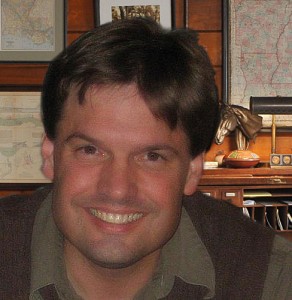
[powerpress]
Dr. Anthony Lilles is a Catholic husband and father of three teaching Spiritual Theology at St. John Vianney Theological Seminary. He  teaches spiritual theology and spiritual direction to transitional deacons, and the spiritual classics to the men who enter the Spirituality Year, a year of prayer in preparation for seminary formation.  He is the author of the “Beginning to Pray”  catholic blog spot.
From “Heaven in Faith: Day 7 Prayer 1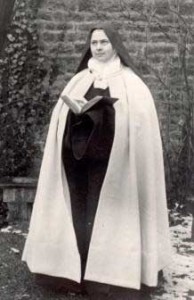 ” found in The Complete Works vol 1:
” found in The Complete Works vol 1:
22. Â “Our created essence asks to be rejoined with its principle”, The Word, “the Splendor of the Father, is the eternal archtype after which creatures are designed on the day of their creation.” Â This is ‘why God wills that, freed from ourselves, we should stretch out our arms towards our exemplar and possess it,” “rising” above all things “towards our model.” Â “This contemplation opens” The soul “to unexpected horizons.”
For other episodes in the series visit the Discerning Hearts page for Dr. Anthony Lilles
We would like to offer heartfelt thanks to
Miriam Gutierrez for providing for us “the voice” of Blessed Elizabeth for this series
Tags: Anthony Lilles, blessed elizabeth of the trinity, caremelites, catholic, catholic podcast, catholic prayer, cathollc spirituality, Elizabeth of the Trinity Episode 13, heaven in faith, Spiritual Theology, St. John Vianney Theological Seminary
This entry was posted on Saturday, April 28th, 2012 at 9:02 am
You can follow any responses to this entry through the RSS 2.0 feed.
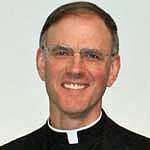 Episode 5Â Praying with Scripture: Christian Contemplation and Mediation in the Ignatian tradition w/Fr. Timothy Gallagher
Episode 5Â Praying with Scripture: Christian Contemplation and Mediation in the Ignatian tradition w/Fr. Timothy Gallagher
Fr. Gallagher continues to discuss the differences and benefits of meditation and contemplation – the cornerstones of Ignatius of Loyola’s spiritual practice.
[powerpress]
For other episodes in the series visit The Discerning Hearts “Praying with Scripture†page
Father Timothy M. Gallagher, O.M.V., was ordained in 1979 as a member of the Oblates of the Virgin Mary, a religious community dedicated to retreats and spiritual formation according to the Spiritual Exercises of St. Ignatius. Â Fr. Gallagher is featured on the EWTN series “Living the Discerning Life: Â The Spiritual Teachings of St. Ignatius of Loyola”.
For more information on how to obtain copies of Fr. Gallaghers’s various books and audio which are available for purchase, please visit  his  website:   frtimothygallagher.org
 For the other episodes in this series check out Fr. Timothy Gallagher’s “Discerning Hearts†page
Tags: catholic, catholic podcast, catholic prayer, cathollc spirituality, Christian Contemplation, Timothy Gallagher, Timothy Gallagher Fr
This entry was posted on Thursday, April 26th, 2012 at 12:39 pm
You can follow any responses to this entry through the RSS 2.0 feed.
Vatican City, 25 April 2012 (VIS) – If prayer and the Word of God do not nourish our spiritual life, we run the risk being
suffocated by the many cares and concerns of daily existence. Prayer makes us see reality with new eyes and helps us to find our way in the midst of adversity. These words were pronounced by Benedict XVI in his catechesis during this morning’s general audience, held in St. Peter’s Square in the presence of more than 20,000 faithful.
The Pope explained how prayer encouraged the early Church, though beset by difficulties, and how it can help man to live a better life today. “Ever since the beginning of her journey the Church has had to face unexpected situations, new questions and emergencies, to which she has sought to respond in the light of the faith, allowing herself to be guided by the Holy Spirit”, he said.
This was already evident at the time of the Apostles. In the Acts, Luke the Evangelist recounts “a serious problem which the first Christian community in Jerusalem had to face and resolve, … concerning the pastoral care of charity towards the isolated and the needy. It was not an unimportant issue and risked creating divisions within the Church. … What stands out is that, at that moment of pastoral emergency, the Apostles made a distinction. Their primary duty was to announce the Word of God according to the Lord’s mandate, but they considered as equally serious the task of … making loving provision for their brothers and sisters in situations of need, in order to respond to Jesus’ command: love one another as I have loved you”.
The Apostles made a clear decision: it was not right for them to neglect prayer and preaching, therefore “seven men of good standing were chosen, the Apostles prayed for the strength of the Holy Spirit, then laid their hands upon them that they might dedicate themselves to the diaconate of charity”.
This decision, the Pope explained, “shows the priority we must give to God and to our relationship with Him in prayer, both as individuals and in the community. If we do not have the capacity to pause and listen to the Lord, to enter into dialogue with Him, we risk becoming ineffectually agitated by problems, difficulties and needs, even those of an ecclesial and pastoral nature”.
Tags: catholic, catholic podcast, catholic prayer, cathollc spirituality
This entry was posted on Thursday, April 26th, 2012 at 11:52 am
You can follow any responses to this entry through the RSS 2.0 feed.
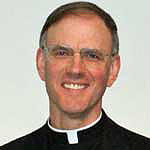 Episode 4Â Praying with Scripture: Christian Contemplation and Mediation in the Ignatian tradition w/Fr. Timothhey Gallagher
Episode 4Â Praying with Scripture: Christian Contemplation and Mediation in the Ignatian tradition w/Fr. Timothhey Gallagher
Fr. Gallagher continues to discuss the differences and benefits of meditation and contemplation – the cornerstones of Ignatius of Loyola’s spiritual practice.
[powerpress]
For other episodes in the series visit The Discerning Hearts “Praying with Scripture†page
Father Timothy M. Gallagher, O.M.V., was ordained in 1979 as a member of the Oblates of the Virgin Mary, a religious community dedicated to retreats and spiritual formation according to the Spiritual Exercises of St. Ignatius. Â Fr. Gallagher is featured on the EWTN series “Living the Discerning Life: Â The Spiritual Teachings of St. Ignatius of Loyola”.
For more information on how to obtain copies of Fr. Gallaghers’s various books and audio which are available for purchase, please visit  his  website:   frtimothygallagher.org
 For the other episodes in this series check out Fr. Timothy Gallagher’s “Discerning Hearts†page
Tags: catholic, catholic podcast, catholic prayer, cathollc spirituality, Christian Contemplation, Father Timothy M. Gallagher, Ignatian tradition
This entry was posted on Thursday, April 19th, 2012 at 11:59 am
You can follow any responses to this entry through the RSS 2.0 feed.
Vatican City, 18 April 2012 (VIS) – Returning to a recent series of catecheses on the theme of prayer, Benedict XVI dedicated his general audience this morning to what has been called the “Little Pentecost”, an event which coincided with a difficult moment in the life of the nascent Church.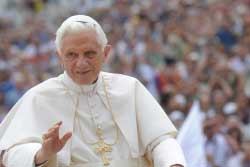
The Acts of the Apostles tell us how Peter and John were released from prison following their arrest for preaching the Gospel. They returned to their companions who, listening to their account of what had happened, did not reflect on how to react or defend themselves, or on what measures to adopt; rather, “in that moment of trial they all raised their voices together to God”, Who replied by sending the Holy Spirit.
“This was the unanimous and united prayer of the whole community, which was facing persecution because of Jesus”, the Pope explained. It involved the community “because the experiences of the two Apostles did not concern only them, but the entire Church. In suffering persecution for Jesus’ sake, the community not only did not give way to fear and division, but was profoundly united in prayer”.
When believers suffer for the faith, “unity is consolidated rather than undermined, because it is supported by unshakeable prayer. The Church must not fear the persecutions she is forced to suffer in her history, but must trust always, as Jesus did in Gethsemane, in the presence, help and strength of God, invoked in prayer”.
Before trying to understand what had happened the first community sought to interpret events through the faith, using the Word of God. In the Acts of the Apostles St. Luke notes how the community of Jerusalem began by invoking God’s greatness and immensity. Then, using the Psalms, those early Christians recalled how God had acted in history alongside His people, “showing Himself to be a God Who is concerned for human beings, Who does not abandon them”, Benedict XVI said. Subsequently the events were read “in the light of Christ, Who is the key to understanding all things, even persecution. The opposition to Jesus, His passion and death were reread … as the accomplishment of the plan of God the Father for the salvation of the world. … In prayer, meditating on Sacred Scripture in the light of the mystery of Christ helps us to interpret current reality as part of the history of salvation which God enacts in the world”.
Thus the plea the first Christian community of Jerusalem made to God in prayer was not “to be defended, to be spared from trials or to enjoy success, but only to be able to proclaim … the Word of God frankly, freely and courageously”. The community also asked that “their proclamation be accompanied by the hand of God so that healing, signs and wonders could be accomplished. In other words, they wanted to become a force for the transformation of reality, changing the hearts, minds and lives of men and bringing the radical novelty of the Gospel”.
“We too”, the Holy Father concluded his catechesis, “must bring the events of our daily lives into our prayer, in order to seek their most profound significance. And we too, like the first Christian community, allowing ourselves to be illuminated by the Word of God and meditating on Sacred Scripture, may learn to see that God is present in our lives, even at moments of difficulty, and that everything … is part of a plan of love in which the final victory over evil, sin and death is truly is that of goodness, grace, life and God”.
Tags: catholic, catholic podcast, catholic prayer, cathollc spirituality, pope benedict xvi
This entry was posted on Wednesday, April 18th, 2012 at 8:26 am
You can follow any responses to this entry through the RSS 2.0 feed.
 Episode 3Â Praying with Scripture: Christian Contemplation and Mediation in the Ignatian tradition w/Fr. Timothy Gallagher
Episode 3Â Praying with Scripture: Christian Contemplation and Mediation in the Ignatian tradition w/Fr. Timothy Gallagher
Fr. Gallagher continues to discuss the differences and benefits of meditation and contemplation – the cornerstones of Ignatius of Loyola’s spiritual practice.
[powerpress]
For other episodes in the series visit The Discerning Hearts “Praying with Scripture†page
Father Timothy M. Gallagher, O.M.V., was ordained in 1979 as a member of the Oblates of the Virgin Mary, a religious community dedicated to retreats and spiritual formation according to the Spiritual Exercises of St. Ignatius. Â Fr. Gallagher is featured on the EWTN series “Living the Discerning Life: Â The Spiritual Teachings of St. Ignatius of Loyola”.
For more information on how to obtain copies of Fr. Gallaghers’s various books and audio which are available for purchase, please visit  his  website:   frtimothygallagher.org
 For the other episodes in this series check out Fr. Timothy Gallagher’s “Discerning Hearts†page
Tags: catholic, catholic podcast, catholic prayer, cathollc spirituality, Christian Contemplation, Timothy Gallagher, Timothy Gallagher Fr
This entry was posted on Thursday, April 12th, 2012 at 6:59 am
You can follow any responses to this entry through the RSS 2.0 feed.
Episode 10 Beginning to Pray: Â “Heaven in Faith” Â Day 5 Prayer 2 – “He who eats My flesh and drinks My blood, remains in Me and I in him.”

[powerpress]
Dr. Anthony Lilles is a Catholic husband and father of three teaching Spiritual Theology at St. John Vianney Theological Seminary. He  teaches spiritual theology and spiritual direction to transitional deacons, and the spiritual classics to the men who enter the Spirituality Year, a year of prayer in preparation for seminary formation.  He is the author of the “Beginning to Pray”  catholic blog spot.
From “Heaven in Faith: Day 5 Prayer 2” found in The Complete Works vol 1:
18. ….”The first sign of love is this:  that Jesus has given us His flesh to eat and His blood to drink.”  “The property of love is to be always giving and always receiving.  Now this love ” of Christ is “generous.  All that He has, all that He is, He gives; all that we have , all that we are, He takes away.  He asks for more than we of our ourselves are capable of giving.”
For other episodes in the series visit the Discerning Hearts page for Dr. Anthony Lilles
We would like to offer heartfelt thanks to
Miriam Gutierrez for providing for us “the voice” of Blessed Elizabeth for this series
Tags: Anthony Lilles, blessed elizabeth of the trinity, carmelites, catholic, catholic podcast, catholic prayer, cathollc spirituality, Elizabeth of the Trinity Episode 10, heaven in faith, Spiritual Theology, St. John Vianney Theological Seminary
This entry was posted on Saturday, April 7th, 2012 at 12:24 am
You can follow any responses to this entry through the RSS 2.0 feed.
The Ave Maria aria is sung by Desdemona (Otello’s wife) in Act 4, as she kneels in prayer with a troubled mind before going to bed.
Here is the English translation
Ave Maria, overflowing with grace,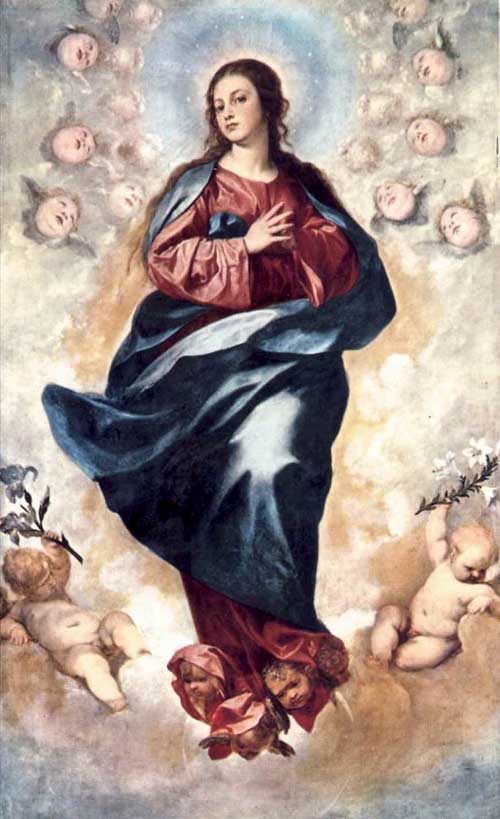
Blessed be the fruit of thy womb.
Blessed are you above all women
for delivering to us Christ Jesus.
Pray for the one
who kneels in prayer before you,
Pray for the wrongdoer
…and for the innocent,
Pray for the weak and oppressed,
…and for those in power,
For the wretched, likewise,
show your mercy.
Pray for the one suffering
cruel misfortune,
Pray for the one who bows his head
under injustice and cruel fate.
And for us… pray for us,
pray always…
…and in the hour
of our death.
Pray for us…
Pray for us…
for us.
Ave Maria . . .
…In the hour of our death.
Ave…
Amen.
Tags: ave maria, catholic, catholic podcast, catholic prayer, cathollc spirituality, Christ Jesus, classical music, death, Desdemona Otello, opera, prayer, renee fleming
This entry was posted on Sunday, March 25th, 2012 at 11:42 pm
You can follow any responses to this entry through the RSS 2.0 feed.
The Angel of the Lord declared to Mary: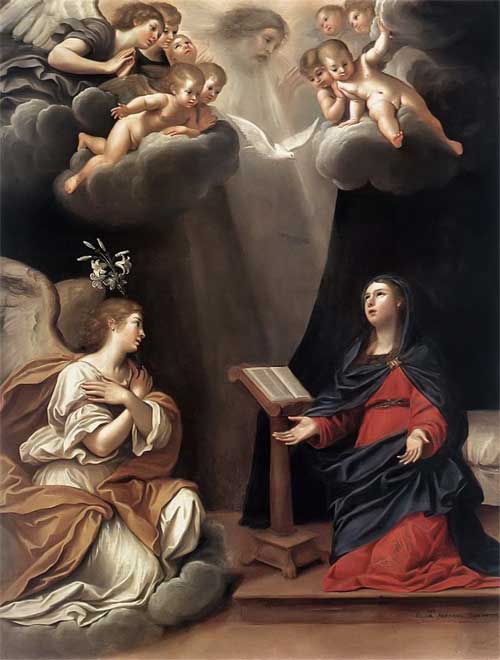
Hail Mary, full of grace, the Lord is with thee; blessed art thou among women and blessed is the fruit of thy womb, Jesus. Holy Mary, Mother of God, pray for us sinners, now and at the hour of
our death. Amen.
Behold the handmaid of the Lord: Be it done unto me according to Thy word.
And the Word was made Flesh: And dwelt among us. Hail Mary . . .
Hail Mary . . .
Pray for us, O Holy Mother of God, that we may be made worthy of the promises of Christ.
Let us pray:
Pour forth, we beseech Thee, O Lord, Thy grace into our hearts; that we, to whom the incarnation of Christ, Thy Son, was made known by the message of an angel, may by His Passion and Cross be brought to the glory of His Resurrection, through the same Christ Our Lord.
Amen.
“Hail, full of grace, the Lord is with you” (Lk 1:28)
“Blessed are you among women,
and blessed is the fruit of your womb”
(Lk 1:42).
Tags: catholic, catholic podcast, catholic prayer, cathollc spirituality, full of grace, hail mary, Holy Mary, mother of god, sacred music, the angelus, Thy Son, women
This entry was posted on Sunday, March 25th, 2012 at 3:52 am
You can follow any responses to this entry through the RSS 2.0 feed.
Episode 9 Beginning to Pray: Â “Heaven in Faith” Â Day 5 Prayer 1 – “Behold, I stand at the door and knock”

[powerpress]
Dr. Anthony Lilles is a Catholic husband and father of three teaching Spiritual Theology at St. John Vianney Theological Seminary. He  teaches spiritual theology and spiritual direction to transitional deacons, and the spiritual classics to the men who enter the Spirituality Year, a year of prayer in preparation for seminary formation.  He is the author of the “Beginning to Pray”  catholic blog spot.
From “Heaven in Faith: Day 5 Prayer 1” found in The Complete Works vol 1:
17. Behold, I stand at the door and knock, If any man listens to My voice and opens the door to Me, I ell come in to him and sup with him, and he with Me.” Blessed the ears of the soul alert enough, recollected enough to hear the voice of the Word of God; blessed also the eyes of this soul which in the light of a deep and living faith can witness the “coming of the Master into His intimate sanctuary.'”
For other episodes in the series visit the Discerning Hearts page for Dr. Anthony Lilles
We would like to offer heartfelt thanks to
Miriam Gutierrez for providing for us “the voice” of Blessed Elizabeth for this series
Tags: Anthony Lilles, blessed elizabeth of the trinity, carmelites, catholic, catholic podcast, catholic prayer, cathollc spirituality, heaven in faith, Spiritual Theology, St. John Vianney Theological Seminary
This entry was posted on Thursday, March 22nd, 2012 at 1:38 pm
You can follow any responses to this entry through the RSS 2.0 feed.
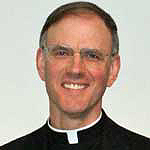 Episode 2Â Â Praying with Scripture: Christian Contemplation and Mediation in the Ignatian tradition w/Fr. Timothy Gallagher
Episode 2Â Â Praying with Scripture: Christian Contemplation and Mediation in the Ignatian tradition w/Fr. Timothy Gallagher
Fr. Gallagher continues to discuss the differences and benefits of meditation and contemplation – the cornerstones of Ignatius of Loyola’s spiritual practice.
[powerpress]
For other episodes in the series visit The Discerning Hearts “Praying with Scripture†page
Father Timothy M. Gallagher, O.M.V., was ordained in 1979 as a member of the Oblates of the Virgin Mary, a religious community dedicated to retreats and spiritual formation according to the Spiritual Exercises of St. Ignatius. Â Fr. Gallagher is featured on the EWTN series “Living the Discerning Life: Â The Spiritual Teachings of St. Ignatius of Loyola”.
For more information on how to obtain copies of Fr. Gallaghers’s various books and audio which are available for purchase, please visit  his  website:   frtimothygallagher.org
 For the other episodes in this series check out Fr. Timothy Gallagher’s “Discerning Hearts†page
Tags: catholic, catholic podcast, catholic prayer, cathollc spirituality, Christian Contemplation, Timothy Gallagher, Timothy Gallagher Fr
This entry was posted on Thursday, March 22nd, 2012 at 8:19 am
You can follow any responses to this entry through the RSS 2.0 feed.

